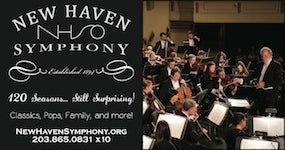The denizens of City Hall (pictured above) have an incredible number of things large and small to plan, administer, oversee or implement. There are laws to make and enforce, infrastructure to build and maintain and children to educate, for a few broad examples, and a complex apparatus to do it with. Even for the civic-minded, understanding it all, let alone participating in and shaping it beyond campaigning for the candidate of your choice and casting a few votes every other September and November, can seem impossible.
For years, Democracy School, a 9-week crash course on New Haven government held each fall, has been helping citizens navigate this labyrinthine territory. The selective, application-based program, open to permanent city residents at or over the age of 18, was started in 2004 by Kate McAdams, a former assistant to outgoing mayor John DeStefano, Jr. Since then, nearly 300 New Haveners have graduated with a much better understanding of how the city functions.
The course’s weekly classes feature clusters of city employees in various municipal departments. At a class focused on the broader strokes of governing, visitors like the mayor, the president of the Board of Aldermen, the city corporation counsel or the town clerk might pop in to explain the ins and outs of their roles in the system. Afterwards, presenters field questions from students, which is when the real fun begins.
sponsored by
“The dialogues are quite robust,” says Rebecca Bombero, DeStefano’s deputy chief of staff and current Democracy School coordinator, as students get to speak directly to decision-makers. Concerned over crime-rate stagnation? On law enforcement night, public safety officials can shed some light on the state of crime and the complexities and realities of stopping it. Maybe on infrastructure night you’ll want to find out why it can take so long to patch up potholes. Maybe you want to know how bus routes are planned.
You have questions, and the Democracy School has answers. “I think a lot of people have varying interactions with city government,” Bombero says, but few understand “the full breadth of what we do.”
The Democracy School itself is a great example of the surprising things city government gets up to. It’s perhaps most remarkable for the fact that it’s a case of a government facilitating citizen voices, rather than merely tolerating them. “My main goal is to move citizens along the activism spectrum,” Bombero says. “We provide them with the information and opportunities to better advocate for themselves and their communities.” After all, once you know how the city works, you also know who and how to approach to get heard.
sponsored by
Some have taken that knowledge a step further. Democracy School alumni include current State Representative Gary Holder-Winfield, New Haven Alderwoman Evette Hamilton and recent mayoral election runner-up Justin Elicker. That’s just a sampling—several other sitting Aldermen and Alderwomen went through the program, some deciding to run soon after graduating.
Over the nine-week period, sessions occur at different locations around New Haven depending on the night’s topic; for examples, classes this past October on infrastructure and education were held at Tweed Airport and the Wexler-Grant School, respectively. Each weekly session offers a sampling of foodstuffs provided by local restaurants, which is smart, because classes last about two and a half hours, and can even stretch out to three if the discussion gets particularly lively. Completion of the program requires fulfilling one of a few illuminating assignments outside of class: attending a Board of Aldermen meeting, sitting in on any number of committee meetings or having a one-on-one discussion with a City Hall employee.
All in all, not bad for a free course.
After nearly a decade of existence at the pleasure of Mayor DeStefano, the Democracy School isn’t guaranteed to return next year under Mayor-Elect Toni Harp. It’d be nice if it did, but hey, that’s democracy for you.
Written and photographed by Jake Goldman.










